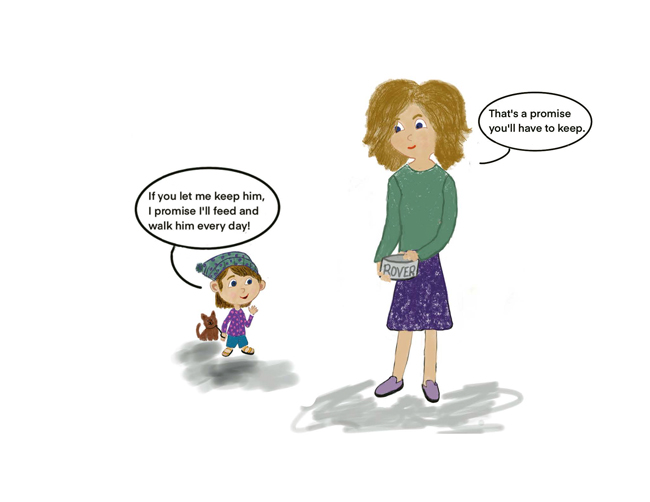
SAN DIEGO — This week’s Torah portion begins with the reading of Matot. The first part of this parshah is a tallying of which family clan owns what—how many sheep, cattle, donkeys and even people each group has. The parshah then goes on to talk about the promises people make. This section teaches about the kind of promise that must be kept. It also explains situations when people might be allowed to break their promises.
What you say is very important. The Torah even includes a section about children. Sometimes a child might make a promise that is very hard to keep. The Torah says a parent (or adult) can decide if it’s okay if the child doesn’t do what they said they would do. According to this Torah portion, it’s also up to the parent (or adult) to decide if it’s a promise the child needs to keep.
Here are two examples:
A promise too hard to keep:
A promise that must be kept:
What you can do: Think carefully before you make a promise. Be sure it is something you’ll want to do and you’ll be able to do. Try to make promises you know you can keep. If you make a promise that’s too hard to keep, ask your parents to help you change it.
*
Marcia Berneger is a retired elementary school teacher as well as a teacher at Torah school. She is the author of such children’s books as Buster the Little Garbage Truck, and A Dreidel in Time.

